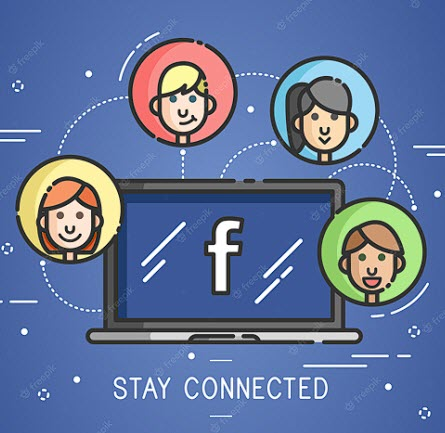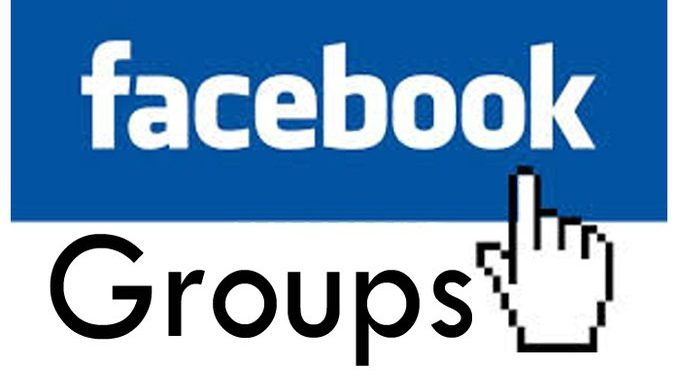Facebook Groups are a powerful way for businesses and individuals alike to build communities around shared interests, causes or products. They provide a platform to engage with like-minded people, offer value and connect with potential customers or followers. However, running a successful Facebook Group requires more than just a few posts and comments. Here are some tips for building and maintaining engagement in your Facebook Group.
Define your Group’s Purpose and Target Audience
Before starting a Facebook Group, it’s essential to define its purpose, goals and target audience. This will help you to create content and invite people to join who are more likely to engage with your group’s topic. You can brainstorm some relevant keywords and type them into the your Facebook group feed search bar to see if there are existing groups around that topic. If so, check their audience size and level of engagement to get an idea of what you can offer differently or better.
Set Clear Rules and Expectations
A successful Facebook Group requires a healthy and respectful environment that promotes open communication and meaningful interactions. Therefore, it’s essential to set clear rules and expectations for your new group members to follow. These can include guidelines for posting frequency, topics, language, disrespectful behaviour, etc. Be sure to enforce these rules consistently and fairly throughout the group’s life.

Foster Engagement and Community Building
A successful Facebook Group depends on its members’ engagement and interactions. Therefore, it’s essential to foster community building through various means, such as weekly threads, polls, Q&A sessions, etc. Some groups also organize virtual or in-person events or meetups to bring their members together and create meaningful relationships beyond Facebook. Remember to be accessible and responsive to your members’ comments, questions, feedback or suggestions.
Analyze and Optimize Your Group’s Performance
Finally, you need to analyze and optimize your Facebook Group’s performance regularly. This includes monitoring your group’s growth, engagement rate, member demographics, content type and frequency, and post quality. You can use Facebook’s Group Insights or rely on third-party analytics tools to get a more detailed overview of your group’s metrics. Based on your observations, you can adjust your content strategy, posting schedule, group rules below, or target audience to better meet your group’s goals and members’ needs.
Facebook Group Marketing: How to Leverage Social Media for Business Growth
Engage with Your Members
Building a community is all about engagement. You need to have conversations with your members, ask questions and seek their opinions. Respond to comments and direct messages promptly. Show your members that you value their contributions and opinions. Creating a positive, welcoming environment is essential for building a loyal following.
Promote Your Group
To attract new members, you need to promote your Facebook Group. You can also run Facebook Ads targeted at your ideal customer. Encourage your current members to the Facebook group faster invite their friends to join the group. You can also use incentives to encourage new members to join the group, such as exclusive content or early access to new products.
Use Analytics to Measure Performance
To understand the effectiveness of your Facebook Group marketing efforts, you need to track and analyze your social media metrics. Facebook Group Insights can provide valuable data on group growth, engagement rates, and member demographics. Use this data to refine your content strategy, posting schedule, and target audience.
The Power of Engagement in Facebook Groups: Active Participation Equals Better Performance

The benefits of being an active participant Being an active participant in facebook group popular a Facebook group can bring many benefits.
Some of these benefits are:
Boosting your credibility
When you actively participate in a group, you establish yourself as a valuable member who is knowledgeable and engaged. This can help boost your credibility and reputation within the group.
Starting discussions
Starting discussions through personal and meaningful conversation that are thought-provoking and relevant can encourage other members to share their thoughts and opinions. This can lead to a vibrant discussion that can help build stronger relationships among group members.
Commenting on posts
Commenting on other members’ posts can also help boost engagement. It shows that you are paying attention and value their contribution to the group. It can also start a conversation that can lead to more engagement from others.
Advantages of Facebook Groups for Businesses
Facebook groups offer businesses a few advantages in comparison to a Facebook page or even an external website. These are some of the main advantages to consider:
Engagement and Interaction
Groups enable businesses to create a space where customers can interact with each other, as well as with the business itself. This interaction can help you to build trust, credibility, and loyalty over time, as your customers see you interacting and answering their questions directly.
Data Collection
In addition to the above advantages, Facebook groups also give businesses easy access to a wealth of data about their audience. From audience demographics to buying preferences, you can learn a lot about your target market simply by keeping an eye on group conversations, engagement rates, and the feedback you receive.
Strategies for Effective Facebook Group Selling
To succeed in Facebook group selling, it’s important to develop a strategy that takes advantage of the unique opportunities the platform presents.
Here are some effective strategies to consider.
Choose the Right Type of Group
There are two types of Facebook groups: Public and Private.
For group selling efforts, a Private Group may be ideal. Private groups offer more exclusive content and access to members, which in turn means that the group becomes more engaged and valuable for members.
That said, depending on the group feed niche, a public group may also work great.
Provide Value
It’s important when starting a Facebook group to focus on providing value before you start selling. This will help build trust with your audience and increase their engagement with your group. Always look at your group first through the lens of what benefits your audience can get from it rather than what benefits you can get from selling.
Curate Content
One way to keep your Facebook group members engaged is to post compelling and educational content regularly. Posting advice, tips, recommendations, industry news or news about your company are good ways to keep them interested.
Share stories about customers or the industry.
Ask engaging questions, and encourage members to share their opinions in the comment section.
Use Calls-to-Action
Calls-to-Action are a great way to drive sales without being too pushy. Using CTAs strategically in your posts could help you build your email list or even prompt users towards impulse purchases.
For example, end your post with a question or request, a facebook group link and offer special promotions or discounts exclusive to group members.
Be Engaging and Interactive
The more interactive you are in the group, the easier it becomes for your audience to trust you. Strike up conversations with your audience, ask for feedback, answer questions promptly and provide value-added responses. Demonstrate your expertise and enthusiasm for the topic in the group. Share content or activities that show you care about the people in the group.
Best Tools and Features for Facebook Group Selling
Facebook offers different features and tools to optimize your Facebook Group Selling efforts.
Automated Responses
Facebook allows businesses to create automated responses to frequently asked questions. This is a great feature to use in a sales-focused group because it can help you respond quickly to customer queries without having to be online all the time.
Facebook Live
Facebook Live is a great way to create real-time video content, for your group, showcase products, unbox shipments, and host Q&A sessions with your followers.
Live videos generally create better engagement and inspire user action, such as asking a question, sharing a story or making a purchase.
Insights and Analytics
Facebook offers extensive insights and analytics to group admins.
You can view active members, most engaging posts, member demographics, and other important data that will inform your group’s selling strategy.
How to Monetize Your Facebook Group: Generating Revenue from Community Building
Identify the right brands: Find brands that align with your group’s values and interests.
Remember, authenticity is crucial, and promoting irrelevant products can damage the trust you’ve built with the audience.
Reach out: Send a direct message or email to the brand’s representative, introducing your group and what you can offer. Be clear about your expectations and your audience’s demographics.
Offer value: To attract sponsors, offer value.
You can offer product reviews or have the company host a Q&A session with your group members. This way, businesses get their brand in front of an engaged audience.
Premium Membership
A premium membership plan can help you earn some money from your Facebook group. If you have a sizeable audience and regularly offer value, members are more likely to pay to access exclusive content or perks.
Here’s how to initiate a premium membership plan:
Create a membership website: You can create a membership website where you offer exclusive access to content, a community, and other membership perks. Use membership website builders like MemberPress, iThemes, and Memberful.
Set subscription fees: Determine how much you want to charge for access. Ensure you offer enough value to justify the cost.
Promote your premium membership: Offer a free trial, partner with influencers, and promote your premium membership plan on all your other social media platforms.
Advertising
Advertising compounds Facebook group monetization. Advertising on your Facebook group page can generate revenue without affecting your user experience.
With advertising, you have two options:
Facebook ads: You can use Facebook’s advertising platform to promote products or services relevant to your group. This way, you make money from the clicks and purchases generated from the ads.
Native advertising: Choose native advertising to make cash from your group. This type of advertising is less intrusive, and you choose which brand or product to promote to your audience.
Affiliate marketing
Affiliate marketing is a popular way to monetize and grow your Facebook group. It involves partnering with a brand to promote its products and services. The brand sends you a unique link, and every time a member of your group clicks and purchases through the link, you receive a commission.
Here’s how to do affiliate marketing:
Choose the right affiliate products: Find brands that align with your community values and interest. Choose products that you’re confident promoting to your audience.
Include affiliate links in your posts: Share affiliate links to products relevant to your audience. Ensure the links are visible and accompanied by high-quality content describing the product.
Track your performance: Track your affiliate links’ performance to know what works best for your audience.
How to Use Facebook Groups for Customer Support: Providing Exceptional Service and Building Loyalty.
Assign Dedicated Staff Members
Having trained and dedicated staff members are crucial when it comes to offering customer support in a Facebook Group. Assign staff members to manage the group and ensure that all inquiries are addressed promptly. Encourage customer support teams to respond quickly and provide helpful answers in a supportive and professional manner.
Set Expectations
One of the keys to successful customer support through Facebook Groups is setting expectations early on. Make it clear to your customers what type of support they can expect from your own group page and during what times it will be available. To avoid frustration, inform your customers of your response turnaround time and what they can do if their issue is urgent.

Foster a Supportive Community
A supportive community is what sets Facebook Groups apart from other forms of customer support on other platforms.
Encourage members to ask questions, share knowledge, and provide helpful tips to others.
Cultivate a supportive culture by thanking members who provide helpful answers and insights and by being responsive and encouraging in the group.
Monitor the Group Regularly
Monitoring the group regularly is an important aspect of offering customer support through Facebook Groups. Ensure everyone on Facebook group exists that the customer support team is keeping a close eye on the group and responding promptly to inquiries. This will help to ensure that no questions or issues are left unresolved.
Use Facebook Live
Facebook Live is a powerful tool for businesses using Facebook Groups for customer support. Use other Facebook groups’ Live sessions to offer product demos, answer questions and announce new developments. Use Facebook’s “Schedule Live Video” feature to let your members know when you’ll be broadcasting and what the topic will be. This way, they can make time to watch the live video and take notes.
Use Analytics
Facebook Groups offer analytics tools that allow you to track the performance of your group, such as post engagement, member activity, and post reach. Analyze these metrics regularly to gain insights into what works and what doesn’t. Use this data to create content and respond to customer inquiries more effectively.

